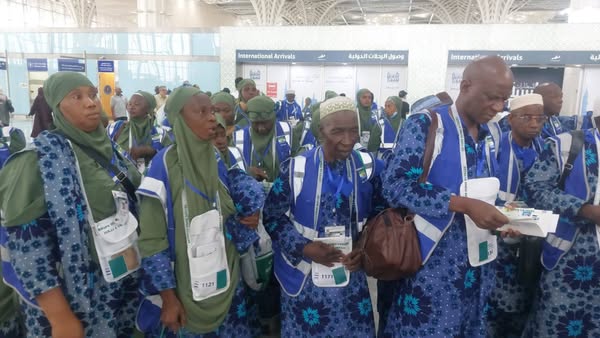By Mohamed Gibril Sesay
The Hajj is meant to be a sacred journey of spiritual renewal- not an obstacle course of bureaucratic mismanagement. Yet for hundreds of Sierra Leonean pilgrims this year, it became a test of endurance not divinely ordained, but carelessly inflicted by the Presidential Hajj Task Force.
One might be forgiven for imagining the Task Force took inspiration from a forgotten ascetic order- perhaps the Druze- who believed bodily suffering was essential to soul redemption. Where there was no hardship, they invented it. As if pain were a prerequisite for piety.
Months before the pilgrimage, intending pilgrims were asked to deposit seven thousand dollars (or the Leone equivalent) into a designated account at the Sierra Leone Commercial Bank. Receipts in hand, they approached the Task Force for registration. What began as a seemingly orderly, bureaucratic process quickly disintegrated into chaos.
The principle of “first come, first served” was casually discarded. Those who paid early and completed their medical requirements discovered that their data had been lost or mixed up. By the time flights were announced, confusion reigned—no one knew where they stood.
At the Kingtom registration center, data management devolved into farce. Records vanished. Files were mismatched. Some staff were courteous; others acted like petty lords in a medieval fiefdom, cloaked in secrecy and wielding authority with disdain.
The condition of the toilet facilities at the Bank Lodge complex, where stool samples were taken, was an affront to dignity—unsanitary, chaotic, and structurally unsound. The atmosphere was charged with anxiety. Questions hung thick in the air like incense: “Am I going?” “Is my name on the list?” “Am I in the first batch?” Pilgrims were bussed around or brusquely bossed about, herded like cattle rather than honoured guests of God.
Flight information trickled in as though it were a closely guarded secret. Pilgrims were transported to the airport and told to prepare for imminent departure- only to learn that the same aircraft which had taken the first batch had to return from Jeddah before it could transport the next group. With no lodging arrangements made, hundreds of pilgrims were stranded at the airport for hours. Over 300 were eventually forced to sleep in mosques around Lungi, hungry, exhausted, and unsure of when- or if – they would finally depart.
And the official explanation? “Hajj entails suffering.”
That remark was not only tone-deaf- it was disgraceful. The rites of Hajj are already physically and spiritually demanding. Governmental incompetence should not be part of the trial. Many are now asking: what happened to the efficient, compassionate team that managed the Hajj so well last year? Why dismantle a functioning system?
Hajj is a pillar of Islam, not a stress test for the endurance of citizens. When the state takes charge of something so sacred, the standards must be higher. Planning must be rigorous. Accountability must be unambiguous. Compassion must underpin every action.
What transpired this year was not merely a logistical failure. It was a moral one.













